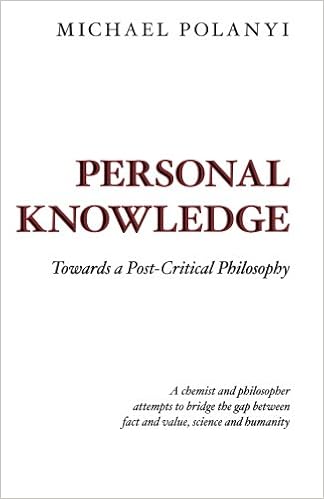
Hungarian philosopher Michael Polanyi (1891-1976) was the author of Personal Knowledge (1958).
Our philosopher (and photographer) friend Laszlo Bencze is reading it and kindly writes to say, “The quote below shows that critiques of evolution long predate the rise of the Intelligent Design movement and are generally based on sound logical principles.”
This [distinguishing patterns from randomness] bears on the theory that the different living species have come into existence by accidental mutations. This can be affirmed only if, first you accredit the distinctive pattern of living beings as exhibiting a peculiar orderliness which you trust yourself to appraise, and second you accept at the same time the belief that evolution has taken place by a vastly improbable coincidence of random events combining to an orderly shape of a highly distinctive character. However, if we are to identify—as I am about to suggest—the presence of significant order with the operation of an ordering principle, no highly significant order can ever be said to be solely due to an accidental collocation of atoms, and we must conclude therefore that the assumption of an accidental formation of the living species is a logical muddle. It appears to be a piece of equivocation, unconsciously prompted by the urge to avoid facing the problem set to us by the fact that the universe has given birth to these curious beings, including people like ourselves. To say that this result was achieved by natural selection is entirely beside the point. Natural selection tells us only why the unfit failed to survive and not why any living beings, either fit or unfit, ever came into existence. —
Michael Polanyi, Personal Knowledge, p. 35
Some have wondered why Polanyi’s critiques have not cut more ice.
Couple things: Timing might have been an issue because the very next year, 1959, featured a huge Darwin hooplah. American intellectual Gertrude Himmelfarb was allowed to critique it in Darwin and the Darwinian Revolution (1959) but maybe no one took her seriously.

Friends have also been known to suggest that the Oxford establishment was uncomfortable with the brilliant and self-taught Polanyi who added to these vices by not participating in the Darwin cult.
Himmelfarb?
You may also wish to read: Himmelfarb On Darwin: An Enduring Perspective After 50 Years, Part 1 (science historian Michael Flannery, December 14, 2009)
A few months ago The Panda’s Thumb used the occasion of Irving Kristol’s death on September 18th to denigrate Gertrude Himmelfarb’s 50 year-old Darwin and the Darwinian Revolution as a “terrible book . . . demonstrating a lack of understanding of biology and a warped view of Darwin’s influence.” The article, written by Jeffrey Shallit, glibly casts aspersions on the late Kristol’s ethic for reviewing Gertrude Himmelfarb (aka Bea Kristol) in Encounter and failing to disclose that he was the author’s husband (though this writer could find no evidence of that at least with her Darwin), this without once reflecting on the questionable propriety of turning what should have been either a respectful obituary or complete silence into an opportunity to insult both the deceased and his widow. If that isn’t unethical, it is at least indecent. Shallit’s one-sided, high-toned moralizing aside, as the “Darwin year” draws to a close and given the fact that Himmelfarb’s biography of Darwin itself has just marked its golden anniversary, perhaps a careful reflection upon that effort is in order. What can be said of Darwin and the Darwinian Revolution in the dusk of 2009? Is it a terrible book?
And here’s Part 2.